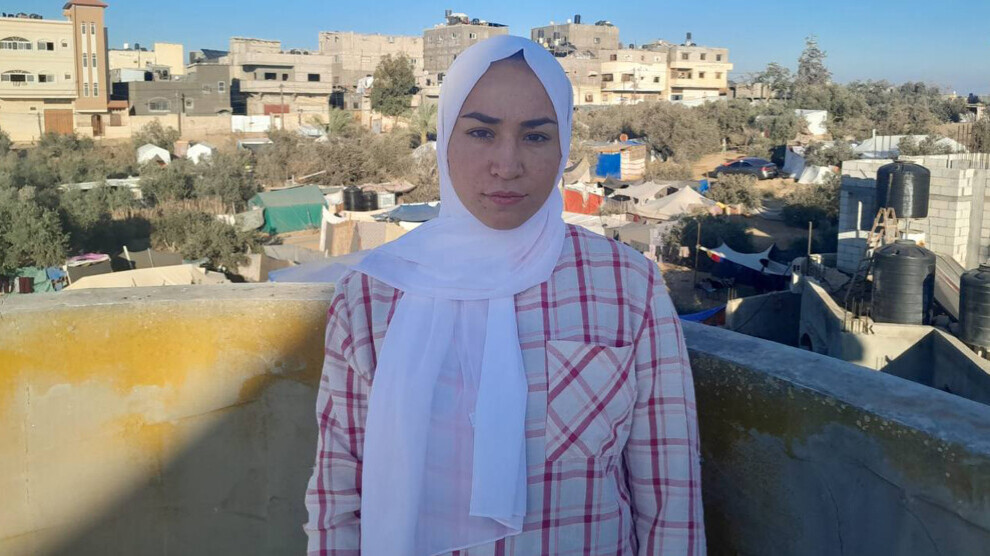Breast cancer patients in Gaza have no access to medicine and treatment
October is the Breast Cancer Awareness Month; however, breast cancer patients in Gaza face many challenges in accessing medicine and treatment.

NAGHAM KARAJEH
Gaza- Women diagnosed with breast cancer in Gaza face a double challenge: fighting the cancer and enduring the consequences of the ongoing war that prevents them from receiving the necessary treatment, making their battle more difficult and complex.
Breast Cancer Awareness Month is an international health campaign held every October, aiming to promote screening and prevention of the disease, which affects 2.3 million women worldwide.
The pink ribbon has become the universal symbol of breast cancer, raising awareness and bringing together women in solidarity.
“Health situation in the Gaza Strip has become catastrophic,” said Ruqayya Saqallah, a doctor in Gaza. “We do not have the capacity to provide the necessary healthcare services to all patients due to the severe shortage of medicines, and sometimes we are unable to even perform the basic tests that patients need.”
‘Hundreds of women diagnosed with breast cancer have no access to necessary healthcare’
Israel has attacked, besieged and bombed many hospital and health facilities all over Gaza, forcing doctors, nurses, and other medical staff working in nearly impossible conditions. Al-Shifa Hospital, the Gaza Strip's biggest hospital, was targeted and its departments, including the Oncology Department, were destroyed, Dr. Ruqayya Saqallah told NuJINHA. “This situation causes hundreds of women diagnosed with breast cancer not to access necessary healthcare services, increasing their suffering.”
‘Stress and anxiety weaken the immune system’
In addition to these challenges, breast cancer patients suffer from psychological pressure due to the ongoing Israeli attacks. “Psychological pressure is one of the factors that can indeed contribute to a decline in a patient's health. Constant stress and anxiety weaken the immune system, making it less capable of fighting off disease,” she said.
No equipment to detect new cases
People in Gaza were already facing the lack of medicines and medical supplies even before the current war started. However, Israeli attacks targeting hospitals and health facilities make the situation more critical, Dr. Ruqayya Saqallah said. “Medicines used to treat cancer, including chemotherapy drugs and hormonal therapies are almost exhausted, threatening the lives of hundreds of women diagnosed with breast cancer. Even the equipment needed for early detection and for cancer screening are almost exhausted. This situation makes it difficult to detect new cases or follow up the existing ones.”
Women try to overcome what has happened in solidarity with each other
Pointing out that women in Gaza continue to resist and have a strong will despite all these challenges and difficulties, she said, “There are small individual and community initiatives that aim to provide psychological and social support to patients. Some women come together in small groups at homes and share their feelings with each other, trying to overcome what has happened in solidarity with each other.”
